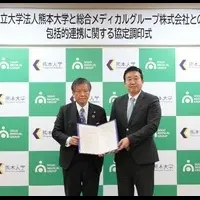
Lunit and AstraZeneca Unveil Groundbreaking AI for Cancer Genotyping at AACR 2025
Lunit's AI-Powered Breakthrough in Cancer Diagnostics
Lunit, a prominent player in the field of AI solutions for oncology, is set to unveil an exciting new study at the American Association for Cancer Research (AACR) Annual Meeting 2025, taking place from April 25 to 30 in Chicago, Illinois. This study will showcase the Lunit SCOPE Genotype Predictor, an AI-driven model designed to predict Epidermal Growth Factor Receptor (EGFR) mutations in patients suffering from non-small cell lung cancer (NSCLC). Developed in collaboration with AstraZeneca, this initiative aims to enhance the accuracy of cancer diagnostics and streamline treatment pathways.
The Importance of EGFR Testing
EGFR mutations play a crucial role in determining the appropriate treatment course for NSCLC patients. Yet, despite guidelines recommending mutation testing, many patients remain untested. Several barriers, primarily related to logistics and resources, hinder access to this essential testing. Lunit's collaboration with AstraZeneca seeks to overcome these challenges by leveraging cutting-edge deep learning techniques to provide more accessible and efficient solutions.
Harnessing Deep Learning
Lunit’s research harnesses the power of artificial intelligence to analyze hematoxylin and eosin (HE)-stained tissue samples. This deep learning model, built upon the largest dataset of its kind, includes over 12,000 pathology slides collected from diverse populations across countries like the USA, China, and South Korea. The dataset comprises around 4,500 slides with EGFR mutations and more than 7,500 from wild-type patients, enabling robust training and validation of the AI model.
Notably, the performance of Lunit's predictive model remained consistent across various clinical variables, including specimen types, EGFR mutation subtypes, as well as different slide scanners and scan magnifications. This versatility positions the AI model for practical use across a varied range of clinical settings, thus paving the way for real-world implementation.
Commitment to Precision Oncology
Brandon Suh, CEO of Lunit, stated, “This study is a testament to the real-world potential of AI in precision oncology. By leveraging Lunit AI, we have demonstrated that routine pathology slides can serve as a powerful tool to predict EGFR mutations with high accuracy.” Suh emphasized that this could help clinicians prioritize molecular testing, ensuring that patients receive timely access to targeted therapies without unnecessary delays, ultimately improving patient outcomes.
The collaboration with AstraZeneca is a significant step forward in Lunit’s ongoing mission to enhance cancer diagnosis and therapy through AI advancements.
Join Us at AACR 2025
Visitors are encouraged to stop by Lunit at Booth #2843 during the AACR 2025 event to explore more about this innovative study and discover how AI is revolutionizing the field of oncology.
About Lunit
Founded in 2013, Lunit is committed to conquering cancer through technology. With FDA-cleared AI solutions that serve over 4,800 medical institutions across more than 55 countries, Lunit aims to ensure optimal cancer diagnosis and treatment for every patient. Its research has been published in esteemed medical journals and has been presented at global medical conferences. For more information about Lunit, visit lunit.io.
Topics Health)










【About Using Articles】
You can freely use the title and article content by linking to the page where the article is posted.
※ Images cannot be used.
【About Links】
Links are free to use.